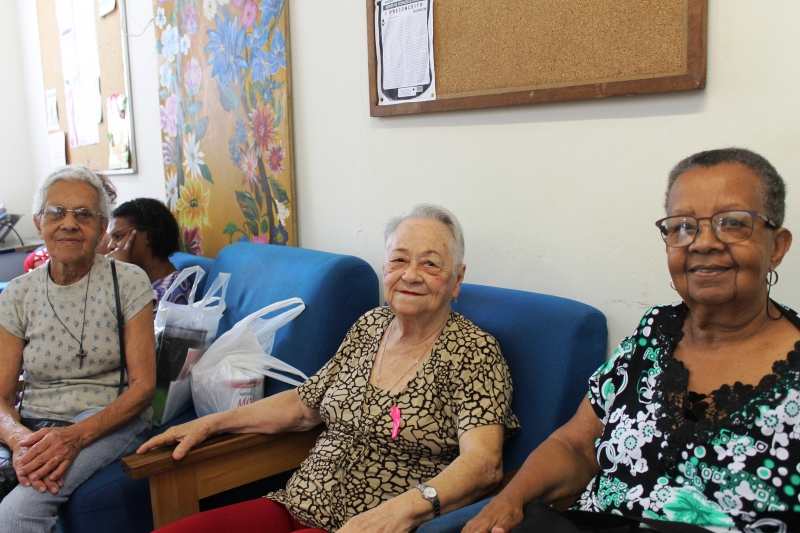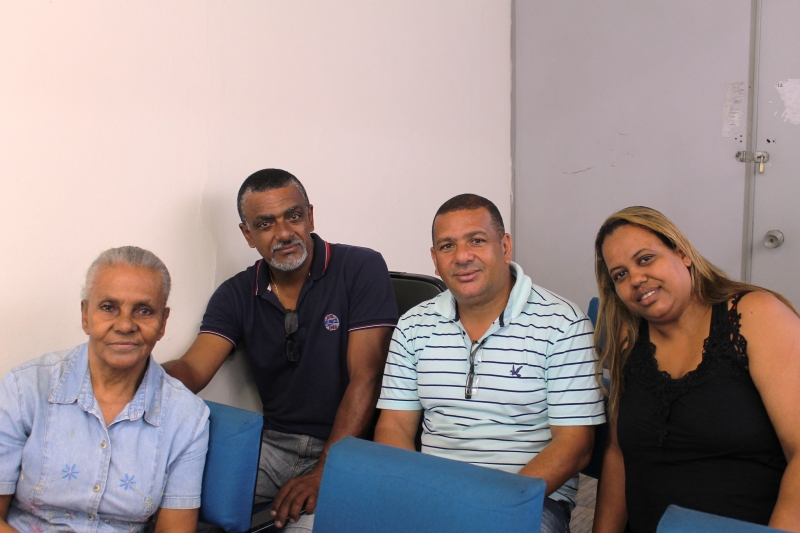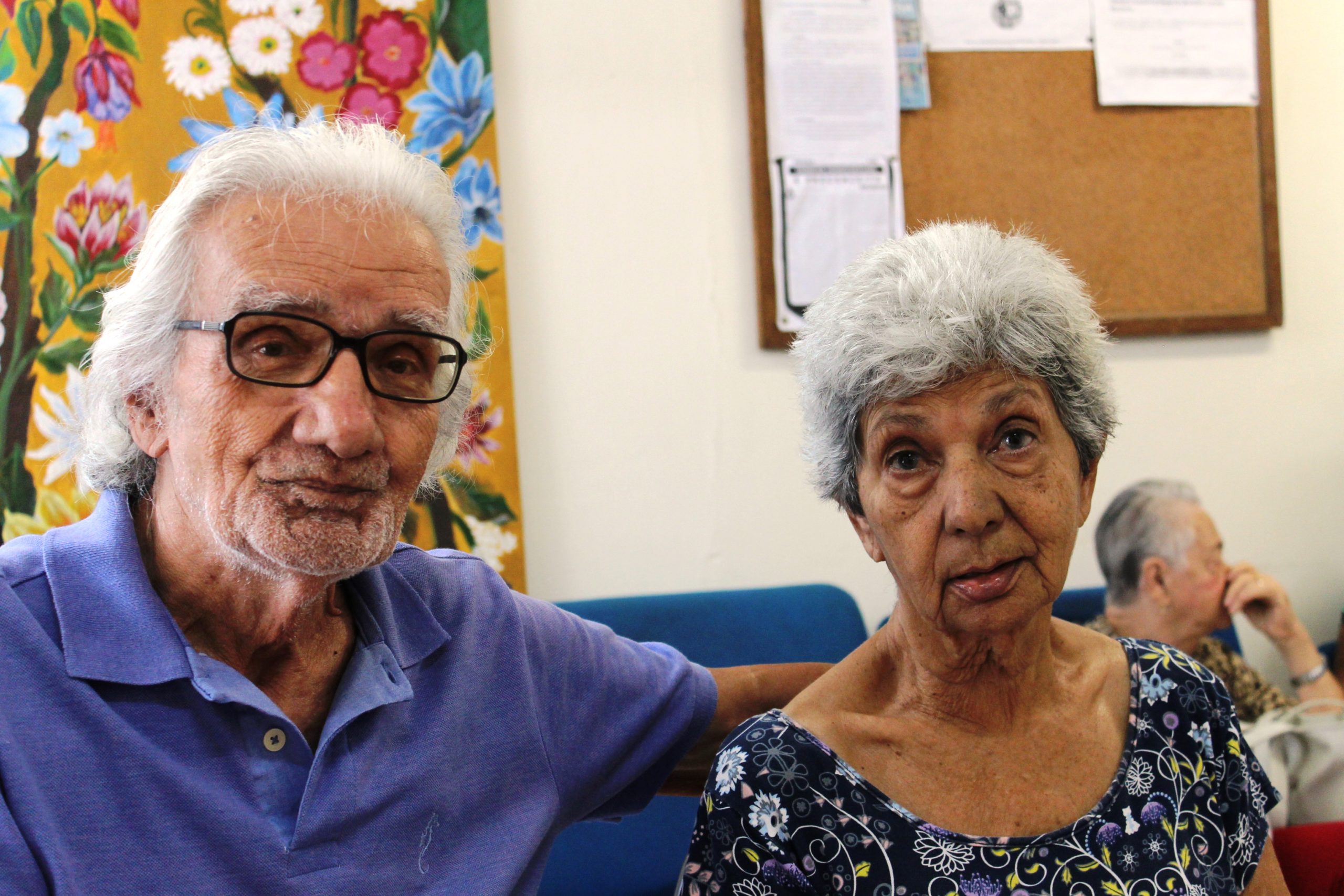Caring for the elderly and investing in the care of those who have reached old age is increasing worldwide. The decrease in the number of births in recent years is slowly aging the planet. Some countries, such as Brazil, are no longer known as young nations since the end of the last century. Today, according to the Instituto Brasileiro de Geografia e Estatística (Brazilian Institute of Geography and Statistics, in Portuguese), the Brazilian already lives, on average, 75.8 years. Health promotion actions are increasing their effectiveness to meet this demand and are encompassing not only new technologies with more accurate treatment and diagnostic testing but also increasing the supply of basic sanitation, decreasing mortality from infectious diseases, spreading of vaccines and antibiotics.
Focusing on improving the quality of life of those who have reached old age, UFF geriatricians created, for more than 20 years, the Centro de Referência de Atenção à Saúde do Idoso de Niterói (Niterói Elderly Health Care Reference Center, in Portuguese, Crasi), known as “Mequinho”, downtown Niterói, where it is installed. The center promotes the prevention and treatment of old age diseases, especially Alzheimer’s disease. The Geriatrics Service, for example, holds weekly stimulation and cognitive rehabilitation workshops.
According to Crasi coordinator Yolanda Boechat, these workshops are the best way to preserve whole functions and stimulate one’s compromised functions. “Through living with each other, we transform the inner reality and expand our memories,” said the UFF geriatrician and teacher, who was attracted to the subject ten years ago, after finishing her doctorate in Neurology and taking over the coordination of the center.
The interest in embracing the cause came after realizing how much the exchange of experiences with the elderly could be beneficial and enriching, from the account of their life stories full of practical knowledge and peculiarities. The work started earlier by Yolanda and neurologist Vilma Duarte – former coordinator of Crasi, who even retired continues to collaborate in the space as a volunteer – were pioneers. In a short time, the service gained notoriety in the Sistema Único de Saúde (Unified Health System) of Niterói and extended to all municipalities in the Metropolitan Region II, which also brings together the cities of São Gonçalo, Maricá, Itaboraí, Tanguá, Rio Bonito and Silva Jardim.
 By working with the elderly, Yolanda considered other medical specializations to address her work in two important areas: aging and treating the elderly. Diseases, such as Alzheimer’s and other infirmities, which were previously seen only as dementia and disability and were generally treated by the neurological field of Medicine, were highlighted in this project. “Today, the elderly continue to receive the same care, but over the years several stimulation groups have been created with various workshops,” she recalled.
By working with the elderly, Yolanda considered other medical specializations to address her work in two important areas: aging and treating the elderly. Diseases, such as Alzheimer’s and other infirmities, which were previously seen only as dementia and disability and were generally treated by the neurological field of Medicine, were highlighted in this project. “Today, the elderly continue to receive the same care, but over the years several stimulation groups have been created with various workshops,” she recalled.
At the Crasi, the work has been carried out in two important and complementary aspects: individual care and group therapy. To this end, partnerships for assistance take place in the municipalities of Metropolitan Region II with care at the Hospital Universitário Antônio Pedro (the University’s hospital), through the Regulation System (Sisreg) and the State’s exceptional medication dispensing system by the Faculties of Medicine, Nutrition, Pharmacy, Nursing, Engineering and Physical Education at UFF, mobilizing students of medical residency and multidisciplinary teams, as well as graduate students.
Crasi history
It all started in 1986 when Professor Vilma Câmara worked at the University’s Hospital Neurology Department and had her division subdivided into behavioral and dementia. Seeking to update herself and for a better professional understanding, she began to study new areas and, in 1987, created interdisciplinary care for patients with dementia and their families in the hospital. After this period, in 2009, Yolanda received the management of the Crasi Geriatrics Service in the hospital, with a portion for dementia care and another for caregivers.
“The great difficulty of teacher Vilma at that time was to stimulate a heterogeneous group in the same room. So through partnerships, today we have four teams of cognitive stimulation and rehabilitation with patients divided by a phase of cognitive impairment, which allows us to give better resolution to each one of them,” says Yolanda.
During this period, according to the coordinator, they had two groups of caregivers to support patients with dementia. Today, through the Comissão de Residência Multiprofissional em Saúde (Multiprofessional Health Residency Commission), the service has a group of 17 residents, which has expanded the possibilities for further work and to further qualify the activities carried out in the sector.
Currently, the training of the multidisciplinary team involved in working with the elderly is done through specialization courses at the graduate level and medical and multi-professional residency. According to Yolanda, to update the students, meetings are held periodically with alumni of Geriatrics, where the university seeks the best specialists to talk about fundamental topics of care for the elderly and their caregivers. “These events are promoted in partnership with the Associação dos Professores Inativos da UFF (Association of Inactive Teachers) and SBGG-RJ (Brazilian Society of Geriatrics and Gerontology), in order to promote the Geriatrics League. We have community activities and health work with topics of interest to the elderly such as osteoporosis, high blood pressure, breast and prostate cancer, among others,” said the teacher.
The interdisciplinary care for the elderly in the University Hospital was implemented in 1992 and, in 1993, the study group on aging and the elderly was officialized in the Office of Outreach (Proex in Portuguese). In 1994, the Graduate Program in Geriatrics and Gerontology began, and in 1996, UFF opened the discipline of Geriatrics in its curricula. After all this process, in 1998, the team moved to Mequinho, where in addition to care for the elderly, they also promoted medical internship, residence, monitoring, outreach, and graduate courses. “All of these activities still take place at the Faculty of Medicine,” said Yolanda.
The teacher estimates that more than one million people have already been assisted in the Interdisciplinary Program of Geriatrics and Gerontology (PIGG) at Mequinho, from 1998 to the present day. Currently, the service has been serving around 350 seniors per month with different workshops and individual consultations. In addition, through the Rede Municipal de Saúde (the municipal health network), people are assisted in the areas of psychology, rehabilitation, physiotherapy, and occupational therapy. There are also social groups, workshops, and group dynamics.
Team of caregivers: the elderly in good hands
All professionals – employees, volunteers, or paid staff – who work in the service are trained exclusively at UFF, through extension or specialty courses. Currently, most of the professionals hired are from graduate studies, even those from other federal units. Mequinho’s operating costs are maintained by the institution.
For Yolanda Boechat, what differs Mequinho’s attendance from other similar initiatives spread throughout Brazil is precisely being one of the few places in the country that has the “expertise of the Universidade Federal Fluminense in neuropsychological assessment, cognitive stimulation by commitment phases and patient experience for the students.”
According to social worker Paula Terra, the dissemination of the “Knowing the Elderly Care Network Institutional Resources Network” project has been very successful with Mequinho users and patients. It gives the elders broad knowledge of all their rights. “Bedridden, for example, or those with Alzheimer’s are entitled to a 25 percent increase in their pensions, and few know it.”
In addition, Paula meets weekly with patients, caregivers, and family members to explain, among other things, how to get the free access card to public transport. During meetings, she also casts doubt on State Law 7916/2018, which gives citizens over 60 years a 50% discount on movie admission and theatrical performances held in state theaters and movie theaters and sets a maximum of 30 days for dispatch in cases, as well as priority service to public agencies and bank branches, among others.
Life stories
“Liked you. You are a very nice guy. Thank you for taking care of me.” Retired Military Policeman and caregiver E.S.M., 81, recalls with emotion the note that his still-lucid wife wrote to her treating doctor many years ago. A resident of Neves, in São Gonçalo, he accompanies his 82-year-old wife H.C.S.M. to Mequinho for weekly attendance. He reports that Alzheimer’s symptoms began 11 years ago, when they sought care at the Military Police Hospital in Martins Torres, Niterói. “In a routine consultation with the neurologist and subsequent MRI and CT scans revealed the disease. Today she depends on me even to eat, take a shower, and change clothes,” he recalled.
 Grandmother of 11 grandchildren and four great-grandchildren, 72-year-old retired cleaning lady L.C., a Pita resident in São Gonçalo, is articulate, independent, and willful, but after a fight with her older grandson, she experienced the first symptoms of depression. “I was quiet and very sad. And after he decided to leave home, I lost 35 kilograms.” Help came when she met Yolanda Boechat at the Hospital Universitário Antônio Pedro. Today, accompanied by her sons Nilson, 52, Nelson, 51, and daughter-in-law Cinthia, 41, she attends weekly meetings with Mequinho’s multi-professional team.
Grandmother of 11 grandchildren and four great-grandchildren, 72-year-old retired cleaning lady L.C., a Pita resident in São Gonçalo, is articulate, independent, and willful, but after a fight with her older grandson, she experienced the first symptoms of depression. “I was quiet and very sad. And after he decided to leave home, I lost 35 kilograms.” Help came when she met Yolanda Boechat at the Hospital Universitário Antônio Pedro. Today, accompanied by her sons Nilson, 52, Nelson, 51, and daughter-in-law Cinthia, 41, she attends weekly meetings with Mequinho’s multi-professional team.
For the super friends Z., 82 years old, E., 79, and N., 75, going to Mequinho every Monday and Wednesday is the unmissable opportunity to catch up, to participate in the waiting room, where receive therapeutic guidance, and sessions of the “Exercise of Health” workshop, which offers gymnastics for the elderly.
Those interested in seeking care should seek a municipal public health unit closer to home or Huap himself, where, after consultation with a doctor, will be referenced to Mequinho through the Regulation System (Sisreg), which coordinates the flow of queries, references, and counter references to the unit.




